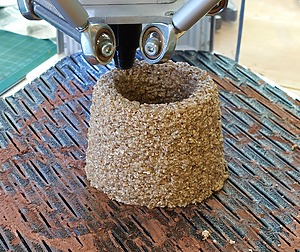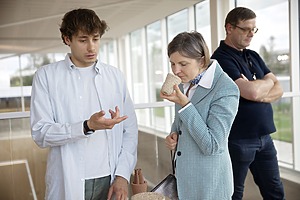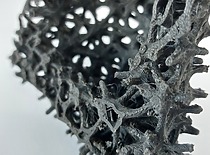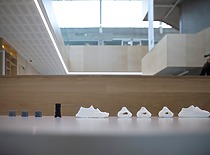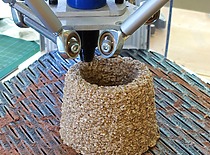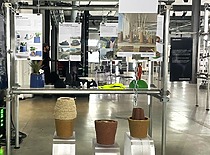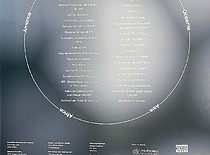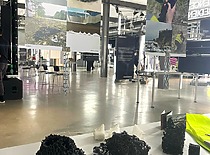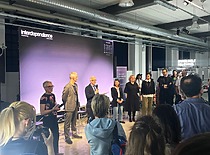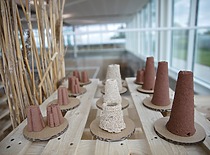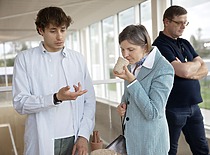For the second year in a row, the name of Kaunas University of Technology (KTU) was featured at one of the largest international design events – Milan Design Week. This year’s exhibition, exploring the future of a fragmented world, showcases conceptual prototypes created by students and lecturers of the KTU Design Centre.
Milan Design Week is a global platform that brings together representatives of design, architecture, art, and business. It addresses relevant topics, presents new directions in design, and fosters opportunities for collaboration. The exhibition, curated by Politecnico di Milano and titled “Interdependence: Exploring Opposites”, invites reflection on the role of design in a society facing increasing polarisation. This year, KTU projects are presented by a team from the Faculty of Mechanical Engineering and Design, along with collaborating partners, curated by Associate Professor Lorenzo Piazzi. The team includes Kotryna Lenkauskaitė, Hari Prasanna Manimaran, Giuseppe Donvito, Corrado Franceschini, Eugenija Tereščenko and students of Industrial Design Engineering Justina Klėjūtė and Justė Motuzaitė.
One of the exhibited works is a prototype of a wild insect habitat, developed under the project BiodiverCities II funded by the Lithuanian Council for Culture. The prototype was created at the KTU M-Lab centre using the knowledge of the D-Lab design laboratory, from the initial model to the development of bio-based, environmentally friendly materials and 3d printing.
The project stemmed from form and aesthetic experiments with netting used to stabilise the dunes in Nida. It raises questions about the interaction between nature, humans, and technology, as well as the role of design in the evolving fashion world.
The creative process also involved the application of artificial intelligence (AI), from idea generation to parametric modelling. The final result is a flexible, impact- and water-resistant nylon shoe prototype developed through an exploration of the collaboration between human creativity and AI.
New study programme to promote a sustainable future
Starting in 2025*, KTU plans to launch a new master’s program, Design for Sustainable Future, aimed at those seeking to drive positive change through design.
According to the program leader, Prof. Dr. Rūta Valušytė, the program addresses the increasing demands placed on designers to develop solutions that are not only visually appealing and functional but also socially conscious and environmentally sustainable.
Students will learn to apply principles of the circular economy, utilise advanced digital technologies, and create sustainable solutions grounded in participatory and systemic design. Strong emphasis will be placed on practical work, addressing real-world challenges in collaboration with business and public sector partners. Design research will also be strengthened, generating new knowledge and insights through practice-based activities.
*The programme will be implemented pending accreditation by the Centre for Quality Assessment in Higher Education.



